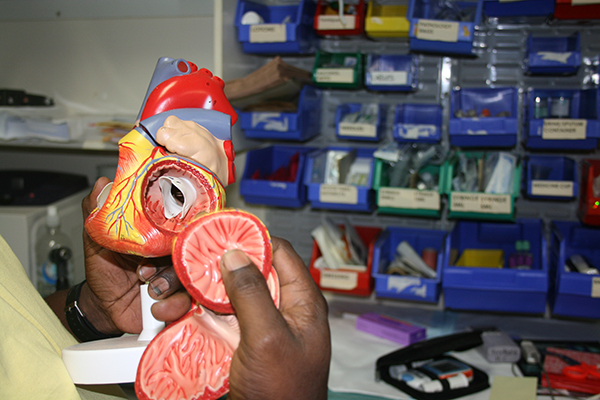Search
Research
Global epidemiology of valvular heart diseaseValvular heart disease is a major contributor to loss of physical function, quality of life and longevity. The epidemiology of VHD varies substantially around the world, with a predominance of functional and degenerative disease in high-income countries, and a predominance of rheumatic heart disease in low-income and middle-income countries. Reflecting this distribution, rheumatic heart disease remains by far the most common manifestation of VHD worldwide and affects approximately 41 million people.
Research
A Meta-analysis on the Role of Children in Severe Acute Respiratory Syndrome Coronavirus 2 in Household Transmission ClustersThe role of children in the spread of severe acute respiratory syndrome coronavirus 2 (SARS-CoV-2) remains highly controversial. To address this issue, we performed a meta-analysis of the published literature on household SARS-CoV-2 transmission clusters (n = 213 from 12 countries). Only 8 (3.8%) transmission clusters were identified as having a pediatric index case.
Research
Time to address the neglected burden of group A StreptococcusJonathan Jeffrey Carapetis AM Cannon AM MBBS FRACP FAFPHM PhD FAHMS BSc(Hons) BBus PhD Executive Director; Co-Head, Strep A Translation; Co-Founder
Research
Increasing incidence of invasive group A streptococcal disease in Western Australia, particularly among Indigenous peopleThe incidence of invasive GAS disease in WA increased between 2000 and 2018, particularly among Indigenous Australians. Mandatory notification of invasive GAS disease would therefore be appropriate. The social determinants of differences in incidence should be addressed, and other relevant host, pathogen, and health system factors investigated.
Research
Rheumatic heart disease in Indigenous young peoplesIndigenous children and young peoples live with an inequitable burden of acute rheumatic fever and rheumatic heart disease. In this Review, we focus on the epidemiological burden and lived experience of these conditions for Indigenous young peoples in Australia, New Zealand, and Canada. We outline the direct and indirect drivers of rheumatic heart disease risk and their mitigation.
Research
Formative evaluation of a community-based approach to reduce the incidence of Strep A infections and acute rheumatic feverWe explore the acceptability of a novel, outreached-based approach to improve primary and primordial prevention of Strep A skin sores, sore throats and acute rheumatic fever in remote Aboriginal communities. A comprehensive prevention program delivered by trained Aboriginal Community Workers was evaluated using approximately fortnightly household surveys about health and housing and clinical records.
Research
Rheumatic Heart Disease Control Programs, Registers, and Access to CareThis chapter outlines the evidence and evolution of RHD control programs and draws conclusions about priorities following the 2018 World Health Organization Global Resolution on rheumatic fever and RHD.

News & Events
Top honour for infectious diseases researchCongratulations to Associate Professor Asha Bowen, who has been awarded the 2022 Frank Fenner Award for Advanced Research in Infectious Diseases.

News & Events
The Kids Research Institute Australia Director elected to prestigious Australian Academy of ScienceProf Jonathan Carapetis has been elected as a new Fellow of the prestigious Australian Academy of Science in recognition of his pioneering, paradigm-shifting expertise in infectious diseases.

News & Events
Preventing RHD through community-driven activitiesHealth activities driven by remote Indigenous communities may be key to the sustainable and successful treatment and prevention of a potentially fatal disease, a study has found.
